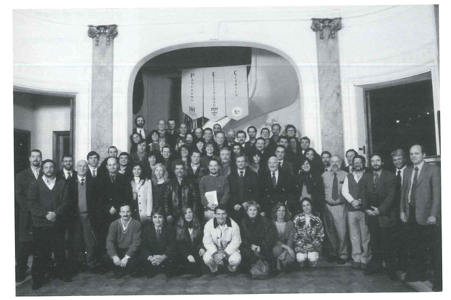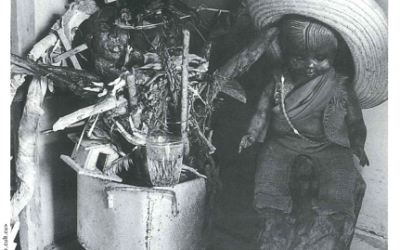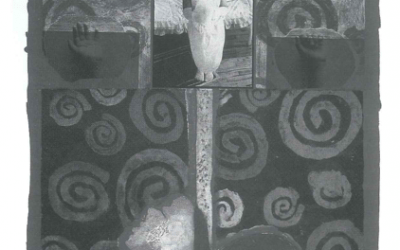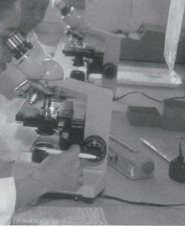Program in Clinical Effectiveness
An initiative of the Hospital Italiano, Faculty of Medicine of the University of Buenos Aires and Harvard School of Public Health

The second year class of the Argentine Program in Clinical Effectiveness.
As a family physician, I’ve always been interested in primary care and also in the broader perspective of health care systems focusing both on the individual patients and on populations. That’s why I became involved with the Argentine Program on Clinical Effectiveness, co-directed by myself and Fran Cook of the Harvard School of Public Health.
I am often startled that Argentina spends approximately U$S 650 per person per year in health care. This figure represents more than 7% of the GDP (Gross Domestic Product) and more than 40% of it corresponds to out of pocket expenses paid by the families or individuals who can afford some kind of private insurance. Even though it is the highest cost rate per person in Latin America, more than 40% of the people, probably those who need it most, lack health care coverage and therefore rely on an increasingly impoverished public health care system.
I found although health costs are among the highest in Latin America, results are not very encouraging. Children and maternal mortality rate is extremely high, and in more than 60% of the cases deaths could be avoided with a correct and timely diagnosis and treatment. Cuba, Chile, Uruguay and Costa Rica spend much less than Argentina but they show lower neonatal and infant mortality rates. These results are much more surprising if we consider that, except for Uruguay, the number of beds and physicians per person in Argentina is higher than in the rest of Latin America.
Since I was also interested in the field of epidemiology, I wanted to learn about ways to improve the effectiveness of interventions in the day to day clinical practice setting. Unfortunately, there was not such a program in Argentina.
In 1994 I decided to apply to the Clinical Effectiveness Program at Harvard School of Public Health. Soon, I realized that all that I had been seeking was already there. I found an atmosphere of academic excellence, superb and warm faculty and students, and very high standards in all the courses I had the opportunity to take. Undoubtedly, that was the program that met all my expectations.
At that time my brother Fernando , also a primary care physician, had recently moved back to Argentina after completing his Master’s in Public Health at San Diego State University.
We had talked many times about working together in the field of primary care, epidemiology, clinical research, health policy and health services research. In April 1996, we were in New York for a meeting of the Society of General Internal Medicine. We were walking downtown along Fifth avenue and right where it meets Broadway, facing the Flatiron building, we dared to imagine for the first time what would be like to set up a program in Clinical Effectiveness in Argentina with the support of the Harvard School of Public Health.
Of course we had the perfect model with the Harvard program, but we did not know if there was any chance of getting Harvard’s interest on it. Although it surely was a long shot, I thought about talking this idea over with whom had been my Harvard mentor: Dr Fran Cook.
I timidly started asking his opinion about the project and, to my great surprise, his response was incredibly supportive and encouraging. He became a crucial source of ideas, advices and key contacts to turn this ambitious idea into a real training program.
The Program
We were able to recruit a great group of incredibly enthusiastic faculty members, who were committed to the idea. We met once or twice a week to discuss every single detail, from academic programs, course syllabi and evaluation strategies to the quality and quantity of the pastries to be served during the coffee breaks and, of course, the chronically constrained budget.
In May 1998, we signed the awaited memo of understanding (MOU) with Fran and the Dean David Shore at Harvard School of Public Health and celebrated the realization of a dreamed project.
Today, the Program of Clinical Effectiveness is a two-year Master’s Program of the University of Buenos Aires jointly organized by the Hospital Italiano de Buenos Aires (our home Institution and a large teaching hospital) , the School of Medicine of the University of Buenos Aires and Harvard School of Public Health.
The program, which started in 1999, today has more than 80 students between first and second year. Most of them are medical doctors with leadership positions in public and private health organizations. The curriculum was developed by the local faculty with strong collaboration from the faculty in the Program in Clinical Effectiveness at HSPH.
We thought it would not be feasible to set up a summer program for the first years, so we designed it as a two year program with classes meeting every fifteen days (14 hours) and home assignments in between. Approximately every two months a week-long series of lectures are given by local faculty and visiting faculty, mostly from Harvard University At the end of the two years, students receive a Certificate issued by the Program in Clinical Effectiveness of the Hospital Italiano and Harvard School of Public Health. Then, those who complete their Master’s Thesis obtain the degree of Master in Clinical Effectiveness of the University of Buenos Aires.
Why Clinical Effectiveness?
Planning of health services and management of health care organizations, as well as most medical practices, are often based on uses, customs and experiences, many of them not scientifically grounded. Moreover, the current situation of the country together with the dynamic changes that we are facing makes it necessary for doctors and other health professionals to acquire new skills in order to implement different and broader approaches. This is where the field of Clinical Effectiveness, a new basic science of clinical practice, comes into action. In this context, Clinical Effectiveness provides better information through basic tools and methods for the analysis of population problems in order to:
- Reduce the nature and extent of health care errors in health decision making.
- Improve medical practice based on existing evidence.
- Use programs for improving the quality of care when planning Health Policies and Services.
- Acquire skills to design studies to generate new evidence
This field has grown all over the world in the last decade due to the dynamic changes of health systems that also occur in our country. These changes include not only a financing crisis but also a policy, and quality crisis affecting the current health care system. This process requires the incorporation of new training techniques for those in charge of the decision making process in order to adapt and evolve in today’s scenario.
1. What are the contents?
The Program includes a group of disciplines that tend to train doctors and other health professionals in the practical application of the necessary tools for clinical and epidemiological research, technology assessment, health policies and health services research. The courses focus on the development of quantitative skills to allow students, at the end of the program, to perform analyses of critical information for the decision making process, especially regarding the impact of clinical practices and health policies .
2. Who should attend?
The main purpose of this program is to give tools to close the existing gap between the physician in his medical activity and the physician or health professional in his management position. Its ultimate aim is that of offering a health evaluating attitude. The Program of Clinical Effectiveness is directed to selected health professionals, leaders in the health care industry (physicians, non-physicians leaders of health care organizations) who wish to contribute with the application of their knowledge in other health care settings.
3. Faculty
Core faculty is drawn from professors from the Argentine Program in Clinical Effectiveness and Harvard School of Public Health who travel to Argentina during different weeks within the school term. Local faculty is chosen for their academic expertise and all have solid training in their fields, both from Harvard and other important Universities from the US or Canada.
4. Purpose of the Program
The Program of Clinical Effectiveness is currently recognized as the most dynamic program of the country in regards to health policy and management, and clinical and outcome research. In June 2000, our program has become an associate member of the Cochrane Collaboration in Argentina, a non-profit international organization led by Oxford University and McMaster University which aims to promote the evaluation of the effectiveness of health intervention. In the near future, we aim to create an Institute for the Evaluation (Assessment) of Health Technology and Policies in order to fill an empty gap that still exists in our country.
Health providers and financing agents from different sub sections within the health care system have to improve the effectiveness and efficacy of services due to the health care cost-containment crisis. In this framework, the training of experts that may lead health organizations towards that objective will be a high priority in the near future.
Being at this crisis point of poor results and great inefficiency of the health system, such initiatives as those of the Program of Clinical Effectiveness, are fundamental. For any country that takes human resources seriously, a different training, designed for those playing an active role in the evolution of the health care system in order to improve effectiveness, quality of care and rational use of resources, is extremely important.
Fall 2000
Adolfo Rubinstein, MD, MSC, Hospital Italiano. Facultad de Medicina. Universidad de Buenos Aires, and Fran Cook ScD, Program in Clinical Effectiveness. Harvard School of Public Health, are co-directors of the Program in Clinical Effectiveness, an initiative of the Hospital Italiano, Faculty of Medicine of the University of Buenos Aires and Harvard School of Public Health. Dr.Rubinstein can be reached at «dolrub@hitalba.edu.ar>
Related Articles
Medicinal Herbs in Times of Low Intensity War
Julio was wet from the pouring rain and frightened. He ran through the streets of Polho, a community in Chiapas sympathetic to the Zapatista rebels, to find Carlos, the health promoter…
A Latina Looks at Disparities
It was my first year of medical school in a new city far from home. I came to Harvard Medical School in the fall of 1999 with many preconceived notions of what I would encounter. Coming…
Health Technology
Advances in computer and telecommunications technology are expanding the promise of medical knowledge, interventions and prevention to the most remote and impoverished regions…




